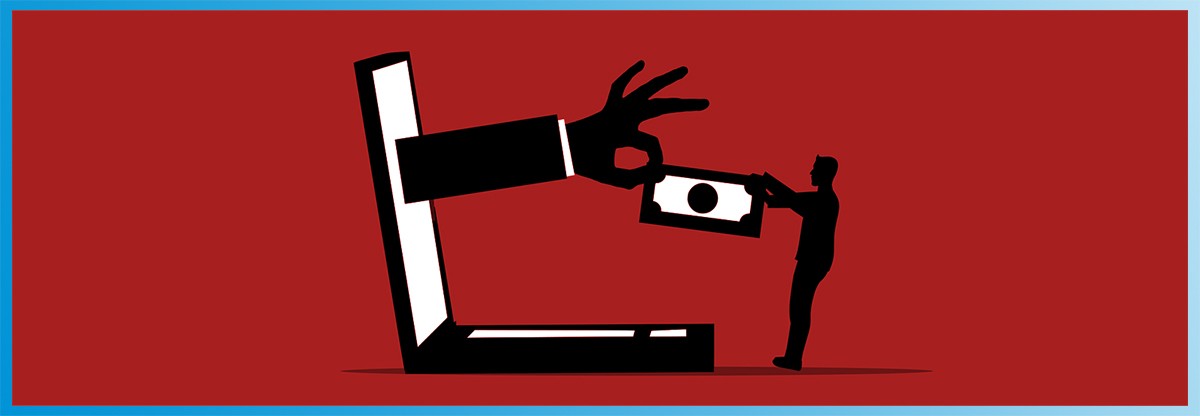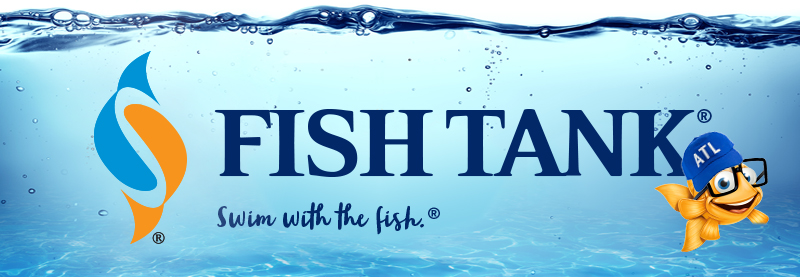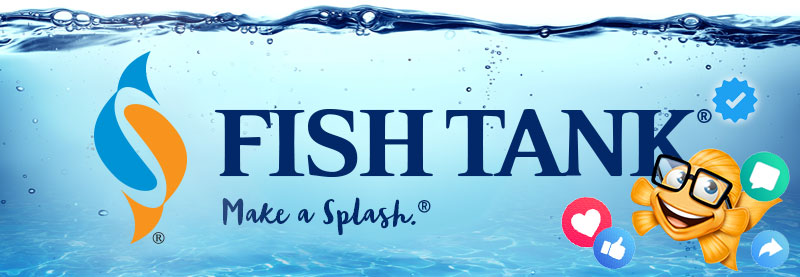Intellectual Property Insights from Fishman Stewart
Mini Article – Volume 22, Issue 6
Share on Social

Scamwatch: “Money, Honey”
Is it just me or is everyone on scam-overload? From “phishing” emails announcing “prizes” that are malware, to “contractors” who, after taking your “deposit,” never show up.
The latest scams are coronavirus-related and they are rampant. As of January 29th of this year, the Federal Trade Commission had logged more than 676,000 consumer complaints related to COVID-19 since January 2020, nearly three-quarters of which involved fraud, such as the sale of fake at-home rapid tests, or charging for tests that are otherwise administered for free.
No surprise, then, that a recent FBI report shows that the Justice Department is seriously failing to combat internet fraud. The FBI annual report on Internet Crime for 2020, says that the Department’s Internet Crime Complaint Center received a record number, 791,790, with reported losses exceeding $4.1 billion. This represents a 69% increase over total complaints submitted in 2019.
The U.S. Patent and Trademark Office (“PTO”) has not been immune from scamming. We recommend that owners of trademark applications or registrations check out the “SCAM ALERT” webpage, HERE. Basically, trademark scammers will extract publicly available data, such as trademark applicants’ and registrants’ names, phone numbers and addresses, and then mail, email, or text trademark-related solicitations to applicants and registrants that appear to be from the PTO.
For example, a solicitation may be a notice of an upcoming filing deadline with an offer of services to respond to the deadline, usually requiring a fee. While these solicitations may often contain correct information (for example, that a filing is due to keep a registration active), you are never required to use the services offered by these companies, and indeed, some are actual scams offering unneeded services or requesting the payment of fees that are not due.
At least the PTO is cracking down. In March 2017, the fraudster company “Trademark Compliance Center” was convicted of money laundering involving a trademark renewal scam. Similarly in 2021, a federal court in South Carolina sentenced the scammer behind the entities “Patent and Trademark Office” and “Patent and Trademark Bureau” on four counts of federal mail fraud for creating a false association with the PTO and deceiving trademark owners into paying expensive fees.
How can I tell the difference between potentially misleading trademark offers and notices and legitimate PTO emails and notices?
Per uspto.gov, all official correspondence about your trademark application or registration will be from the “United States Patent and Trademark Office” in Alexandria, Virginia, and all emails will be from the domain “@uspto.gov.”
Further, and no surprise, the scammers send the fraudulent letters directly to the parties, not their attorneys. When a party is represented by counsel, the PTO only communicates with counsel. Thus, if you are represented by counsel, anything you directly receive that appears to be from the PTO, is likely to be a scam.
As with all facets of online life, it pays to be vigilant.
Published March 25, 2022


Related Content from Fishman Stewart
Watching scary movies is a time-honored Halloween tradition, and one of the greatest movies to watch this time of year is “Ghostbusters” which premiered in 1984.
Halloween is coming up at the end of this month, and we are celebrating a little early with the spooky copyright story of Jap Herron!
In 2023, California artist Joe Morford lost his copyright infringement lawsuit against Italian artist Maurizio Cattelan. Morford claimed that Cattelan's viral artwork "Comedian," which features a banana duct-taped to a wall, was a copy of his own work, "Banana and Orange."
Last month, Outkast filed suit against ATLiens Touring, seeking an injunction against ATLiens Touring’s continued use of ATLiens and seeking damages.
Fourteen teams of the US National Basketball Association (NBA) have been sued in federal district court for copyright infringement. The complaints were filed by companies claiming to own rights in various musical works.
In the digital age, social media has become a powerful platform for content creation, enabling individuals and businesses to reach wide audiences. Platforms like Instagram, TikTok, and YouTube have made it easy for anyone with a smartphone and an internet connection to create and share content.
In a recent decision, the U.S. Court of Appeal for the Eighth Circuit affirmed a jury verdict holding that the use of the "Success Kid" meme by a congressman's reelection campaign for fundraising purposes did not qualify as fair use.
In February 2024, proposed legislation was introduced in US House of Representatives which would extend copyright protection to golf courses. The bill is titled “Bolstering Intellectual Rights against Digital Infringement Enhancement Act” or the “BIRDIE Act”.
June is Pride Month, which honors the 1969 Stonewall Uprising in Manhattan and recognizes the impact that lesbian, gay, bisexual, and transgender (LGBTQ+) individuals have had on history locally, nationally, and internationally. The United States Patent and Trademark Office flies the Pride Flag and promotes the Pride community’s contributions with programming offered annually.
June is Pride Month. This year we are celebrating with some IP tips for drag performers! Drag performers can protect their intellectual property by registering the copyrights in their original works of music, choreography, and comedy sketches.
IDENTIFYING, SECURING AND ADVANCING CREATIVITY®











